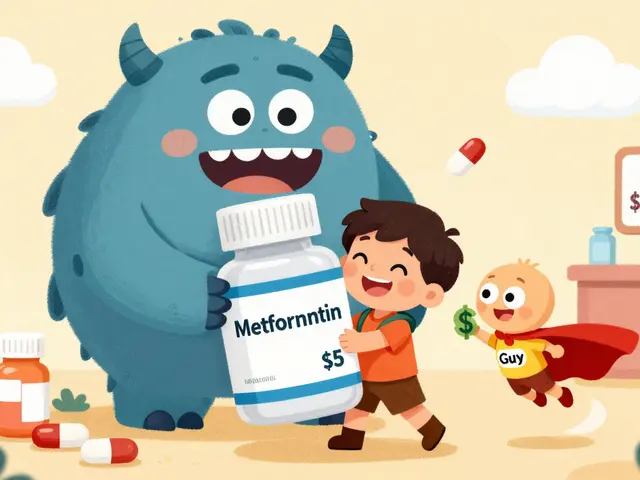It’s wild to think how many people trust something without knowing what it really does. Lquin is a solid example of this strange confidence. Almost everyone has heard of it, but ask people what it’s for and you’ll get a hundred different answers. The crazy part? A lot of folks use Lquin when they might not really need to. Even pharmacists admit that customers don’t always ask the right questions about it.
What Exactly Is Lquin?
Let’s start with the basics. Lquin is short for levofloxacin, a synthetic antibiotic that belongs to the fluoroquinolone class. If you’ve ever had a tough bacterial infection—think a stubborn sinus infection or a nagging chest problem—there’s a decent chance your doctor handed this over. It works by choking off the bacteria’s ability to replicate. It basically shuts down an enzyme bacteria need to unwind and copy their DNA. That stops the bacterial party right in its tracks.
Here’s where it gets interesting: Lquin isn’t your first answer for the sniffles or just any sore throat. It’s important medicine and should only show up if milder antibiotics can’t get the job done or the bug is resistant to others, like amoxicillin. For serious respiratory infections, persistent urinary tract infections, or even nasty skin infections, doctors often reach for it. In fact, a 2022 study in The Lancet pointed out that resistance to older antibiotics has quietly made Lquin and its cousins more common in clinics around the globe.
The trouble starts when people don’t see it as a big deal. It’s only available by prescription in most countries for a good reason. Using Lquin for something minor isn’t just pointless—it can mess up your gut, encourage bacteria to outsmart it, or cause side effects that are anything but rare. Doctors weigh all that before deciding you actually need it. A few cases in 2023 got a lot of attention when patients developed tendon injuries after being prescribed Lquin for tiny infections. Turns out, that’s not as uncommon as you might think—especially in older adults or those who love hitting the gym.
Lquin’s Main Uses and When It Makes Sense
If you ask most people what they think Lquin is for, you’ll hear everything from toothaches to cold symptoms. But Lquin isn’t for viruses—the common cold included. It only works against bacteria, and not even all of them.
The clearest green lights for taking Lquin show up in infections like:
- Chronic or acute sinusitis that won’t back down after basic antibiotics
- Bacterial pneumonia where standard meds don’t work
- Persistent or complicated urinary tract infections
- Severe skin and soft tissue infections
- Certain cases of prostatitis in men
If you dig up the World Health Organization’s guidelines, you’ll spot levofloxacin on their essential medicines list, but marked with cautions. Why? Partly because it can cause some sneaky but serious side effects. It’s also become a “last resort” in places where bacteria ignore the lighter antibiotics. In India, it’s still a top-three pick for tough UTIs, but in France, doctors are way more careful because of tendon and nerve risks.
Now, say a dentist prescribes you Lquin for a toothache. That’s not standard. Unless you’ve got an abscess with evidence of a serious bacterial infection, there’s probably another medicine to try first. Kids and pregnant women almost never get prescribed Lquin—there’s too many unknowns when it comes to safety for them. Even for adults, athletes and older folks have to be watched closely. Here’s a weird but useful tip: If you’re taking calcium or iron supplements, space them at least two hours apart from taking Lquin. Both supplements can tank the drug’s absorption, making it less effective.

Lquin Side Effects: What No One Tells You
Here’s a shocker—most people who run into side effects don’t even realize Lquin caused them. The list is longer than most expect, and some symptoms show up weeks after your last dose. The basic side effects are stomach troubles, nausea, headache, and a weird metallic taste in your mouth. But dig deeper, and you start to see why doctors hesitate to prescribe it right off the bat.
The tendon danger is real. It most famously affects the Achilles tendon, but any tendon can be hit. There have been pro tennis players sidelined for months after a simple infection led to Lquin-linked tendonitis. Symptoms usually start with pain, swelling, or trouble moving the joint. If you’re in the middle of treatment and feel sudden soreness in your heel, don’t power through it—call your doctor before it literally gives out.
Some people have nerve pain (called neuropathy), which can feel like pins and needles or burning in the hands and feet. Occasionally, permanent nerve damage has been linked to this drug. Other rare issues include changes in mood, confusion, or insomnia. Believe it or not, a few case studies even report hallucinations in seniors. If you mix Lquin with blood thinners like warfarin, there’s a greater chance of bleeding problems, so doctors often run extra blood work.
Sun sensitivity is another problem. Even a quick stroll in mild sunlight can cause a rash or blistering. Bring out the sunscreen and long sleeves if you can’t avoid going outside. Only a handful of antibiotics do this, and Lquin is on that list. Here’s a lifesaver of a tip: If you’re having trouble sleeping while taking it, try shifting your dose to the morning. That can keep your sleep schedule on track and stop restlessness at night.
Should Everyone Avoid Lquin? Common Myths and Tips
It’s tempting to see Lquin as a wonder drug. But there’s a reason doctors have second thoughts. You’ll hear a lot of armchair experts swear it’s bad for your heart, that it’ll ruin your stomach forever, or that nobody should ever take it. The truth is more nuanced. If your doctor prescribes it, it’s usually because the bacteria causing your infection have outsmarted the safer antibiotics. Skipping it just because of internet rumors could lead to a much scarier health mess.
But dosing is key. You have to take your prescription all the way through, even if you feel better after a day or two. Cutting it short helps bacteria learn how to dodge it, which means it may not work for you (or anyone else) next time. This is a good place to mention that alcohol isn’t strictly off-limits, but can make side effects like dizziness worse. If you have kidney trouble, doctors typically adjust your dose.
Here’s an overlooked tip: Lquin passes through breast milk, so don’t use it if you’re nursing. People with epilepsy or a history of seizures also need alternatives. And if you have allergies to other quinolones (like ciprofloxacin), it’s a clear no-go.
There’s some evidence that probiotics or plain yogurt help keep your gut healthy while you’re taking Lquin, since one of the drug’s more annoying side effects is wiping out the good bacteria along with the bad. Separate probiotics from your dose by a few hours to make sure they survive the trip through your stomach.
If your infection gets worse or you break out in a rash, call your doctor. That’s not the time for Google or random internet forums. A lot of doctors say they’ve seen people skip follow-ups and wind up with complications that were totally avoidable.

What Sets Lquin Apart: Practical Facts and Advice
The number one thing that makes Lquin special is its strength. Compared to most antibiotics, the dosing is once a day. That’s a dream for people who hate remembering to take pills every few hours. It also means there are fewer chances for missed doses, so bacterial resistance is less likely if you stick to the plan. And Lquin is super reliable in places where hospital-acquired infections are tough to treat. In 2024, the CDC counted it among the top weapons for containing certain outbreaks in intensive care units—when nothing else would do the trick.
On the flip side, the strength is what causes the long list of side effects. The effectiveness and risk are two sides of the same coin. That’s why Lquin isn’t a go-to medicine for kids, pregnant women, or people with certain chronic health conditions. It should only come off the shelf when there’s a good reason—and your doctor should walk you through the pros and cons specific to your situation.
Lquin should always be taken at the same time each day. That keeps a steady amount in your bloodstream and cuts down the odds of resistance. If you accidentally miss a dose, don’t double up—just take it as soon as you remember, unless it’s almost time for the next one.
Store it at room temperature and away from sunlight. And if you’re someone who loves their supplements—like magnesium or zinc—space those out from your Lquin dose, or you’re basically throwing money down the drain.
If you want to avoid trouble and use Lquin safely, always ask your doctor these specific questions: Why do I need this instead of a milder antibiotic? What are the main red flags in terms of side effects? Should I change what supplements or food I eat while taking this? And what’s my follow-up plan?
Long story short: Lquin is a heavy hitter in the antibiotic world, and it deserves respect. With the right info and a good doctor in your corner, it can knock out infections that nothing else will touch—but only if you use it wisely.





8 Comments
Carl Mitchel
People love to take shortcuts with antibiotics and act like they’re invincible, but the reality is that misusing Lquin is downright reckless. You can’t just pop a pill because a friend swears it works for a sore throat; that’s ignoring basic microbiology. The drug’s power comes with a price – tendon damage, gut disruption, and the looming threat of resistance. If you’re not willing to accept those risks, you shouldn’t be on the prescription in the first place.
Suzette Muller
I get that the moral angle feels heavy, but it’s also useful to know that proper timing with supplements can keep Lquin effective. Taking calcium or iron at least two hours apart is a simple tweak that avoids absorption issues. And if anyone’s worried about gut health, a probiotic taken several hours after the dose can help maintain the good bacteria.
Josh SEBRING
Honestly, if your doctor gave you Lquin, they probably have a good reason – stop questioning it.
Lily Tung
Lquin represents a paradoxical pinnacle in antimicrobial therapy wherein its formidable efficacy is counterbalanced by a litany of potential adverse sequelae that demand meticulous clinical discernment. Its mechanism of action, predicated upon the inhibition of bacterial DNA gyrase, confers a rapid bactericidal effect that is indispensable in the management of recalcitrant infections. The pharmacokinetic profile, characterized by once‑daily dosing, engenders superior patient adherence relative to agents requiring multiple daily administrations. Nevertheless, the convenience of a streamlined regimen does not obviate the necessity for vigilant monitoring of organ‑specific toxicities. Tendon rupture, particularly of the Achilles, remains a salient concern that manifests insidiously and may culminate in catastrophic loss of function if unheeded. Neuropathic phenomena, ranging from paresthesia to irreversible peripheral neuropathy, underscore the drug’s capacity for neurotoxicity. Dermatologic hypersensitivity, exemplified by photosensitivity reactions, further complicates the safety landscape. Concomitant administration with anticoagulants, such as warfarin, potentiates hemorrhagic risk, thereby mandating dose adjustments and serial coagulation assessments. The contraindication in pediatric and pregnant populations is predicated upon insufficient safety data, reinforcing the principle of risk stratification. Moreover, the drug’s propensity to provoke Clostridioides difficile infection, albeit infrequent, necessitates prompt identification and intervention. In the context of antimicrobial stewardship, the judicious deployment of Lquin is paramount to curtail the emergence of fluoroquinolone‑resistant strains. An evidence‑based algorithm that reserves Lquin for infections refractory to first‑line agents optimizes therapeutic outcomes while mitigating collateral damage. Patient education concerning adherence, potential side effects, and the importance of reporting emergent symptoms cannot be overstated. Ultimately, the clinician’s acumen in balancing the drug’s formidable antimicrobial potency against its formidable adverse effect profile determines its role as a life‑saving agent rather than a liability.
Taryn Bader
Wow, reading about all those side effects feels like a drama series – the tendon drama, the nerve drama, the skin drama. It’s scary but also kind of fascinating how one pill can cause so many plot twists.
Myra Aguirre
I just think it’s good to stay calm and follow the doctor’s instructions, especially about timing with supplements.
Shawn Towner
Sure, Lquin is powerful, but I’d argue that the hype around it sometimes overshadows simpler options that work just fine for many infections.
Ujjwal prakash
Look, I’ve seen too many people treat Lquin like a miracle cure, and it’s just not that simple, you know? It can be a lifesaver when you really need it, but you’ve also got to watch out for the tendon pain, the skin rash, the weird mood swings – all of those can sneak up on you, especially if you’re already juggling other meds, like blood thinners, or if you’re pulling all‑nighters at the gym; so, bottom line: respect the prescription, follow the dosing schedule, and don’t ignore any weird symptoms, okay?